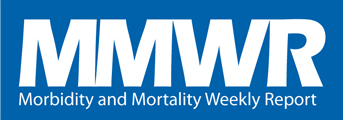MMWR News Synopsis for November 20, 2014
Diabetes Self-Management Education and Training Among Persons with Newly Diagnosed Diabetes and Private Insurance — United States, 2011–2012
Diabetes Self-Management and Training (DMST) is essential in diabetes care but substantially underused among persons with newly diagnosed diabetes even in a privately insured population. Health care providers are encouraged to refer patients with newly diagnosed diabetes into DSMT. Patients are encouraged to talk to their doctor or healthcare provider about learning to manage, control, and take charge of their diabetes. More information can be found at http://ndep.nih.gov/hcp-businesses-and-schools/guiding-principles/principle-03-provide-self-management-education-support.aspx. Diabetes is a serious disease associated with severe complications and premature death. DSMT helps patients improve blood sugar control, which could reduce the risk for diabetes complications, hospitalizations, and health care costs. However, data showed that fewer than 7% of persons with private health insurance received DSMT within 1 year after diagnosis with diabetes. Furthermore, across different population subgroups, DSMT participation rates were less than 15%. Health system level interventions such as improving access to DSMT, along with individual-level interventions such as behavioral change strategies, might be considered to increase the rate of DSMT participation among persons with newly diagnosed diabetes.
Progress Toward Global Eradication of Dracunculiasis — January 2013–June 2014
With only 148 dracunculiasis cases reported in 2013 (the lowest annual total ever), only four endemic countries remaining, and 76% of cases from shrinking endemic areas of South Sudan, the goal of eradicating Guinea worm disease is closer than ever. In 1986, the World Health Assembly called for the elimination of dracunculiasis (Guinea worm disease), a parasitic infection in humans caused by Dracunculus medinensis. At that time, an estimated 3.5 million cases occurred annually in 20 countries in Africa and Asia. Since then, tremendous advancement has been made towards global dracunculiasis eradication. In 2013, 148 cases were reported from four endemic countries — Chad, Ethiopia, Mali, and South Sudan — and from Sudan, where there was a small outbreak. In 2014, progress toward global dracunculiasis eradication has accelerated. During January–June 2014, only 27 cases were reported worldwide, a 71% reduction in cases from the same period in 2013. Eradication is likely within the next year or two if disruption of program operations can be minimized, particularly in Mali.
Global Routine Vaccination Coverage, 2013
Despite substantial improvement in global immunization coverage, more still needs to be done to ensure that all children are protected from vaccine-preventable diseases. One aspect that has become increasingly important as vaccination programs mature is the strengthening of vaccination platforms during the second year of life. Since the Expanded Program on Immunization was established in 1974, the proportion of children vaccinated with the original four vaccines has increased substantially from <5% to 84%, and many new vaccines have been added to recommended schedules. However, coverage has plateaued over the last five years and many children, particularly in developing countries, are still not being fully vaccinated. Nearly 70% of incompletely vaccinated children worldwide live in only 10 countries, highlighting inequity among countries. As additional vaccines are incorporated into vaccination schedules, immunization platforms beyond the first year of life become more important. Improvements in equity of access and use of immunization services will help ensure that all children are protected from vaccine-preventable diseases.
Progress Toward Poliomyelitis Eradication — Nigeria, January 2013–September 2014
Nigeria is paving the way for a polio-free Africa. With just six reported cases of wild poliovirus this year, stopping polio in Nigeria is within reach. However, the final steps toward polio eradication in Nigeria will require continued national program innovations and strategies to improve polio vaccine coverage for underserved and hard-to-reach communities. Nigeria is on the brink of eradicating wild poliovirus (WPV), with only 6 WPV cases reported this year. This is a substantial decrease from 122 cases in 2012 and 53 cases for the entire year in 2013. A polio-free Africa is within reach. National program innovations and strategies to improve polio vaccine coverage for underserved and hard-to-reach communities have resulted in tangible successes, but the final steps toward polio eradication in Nigeria will require that these efforts continue. If eradication becomes a reality, lessons learned and resources used toward this effort can be redirected toward addressing other national public health issues. Nigeria is one of three countries worldwide (the others are Afghanistan and Pakistan) where WPV transmission has never been stopped.
###

